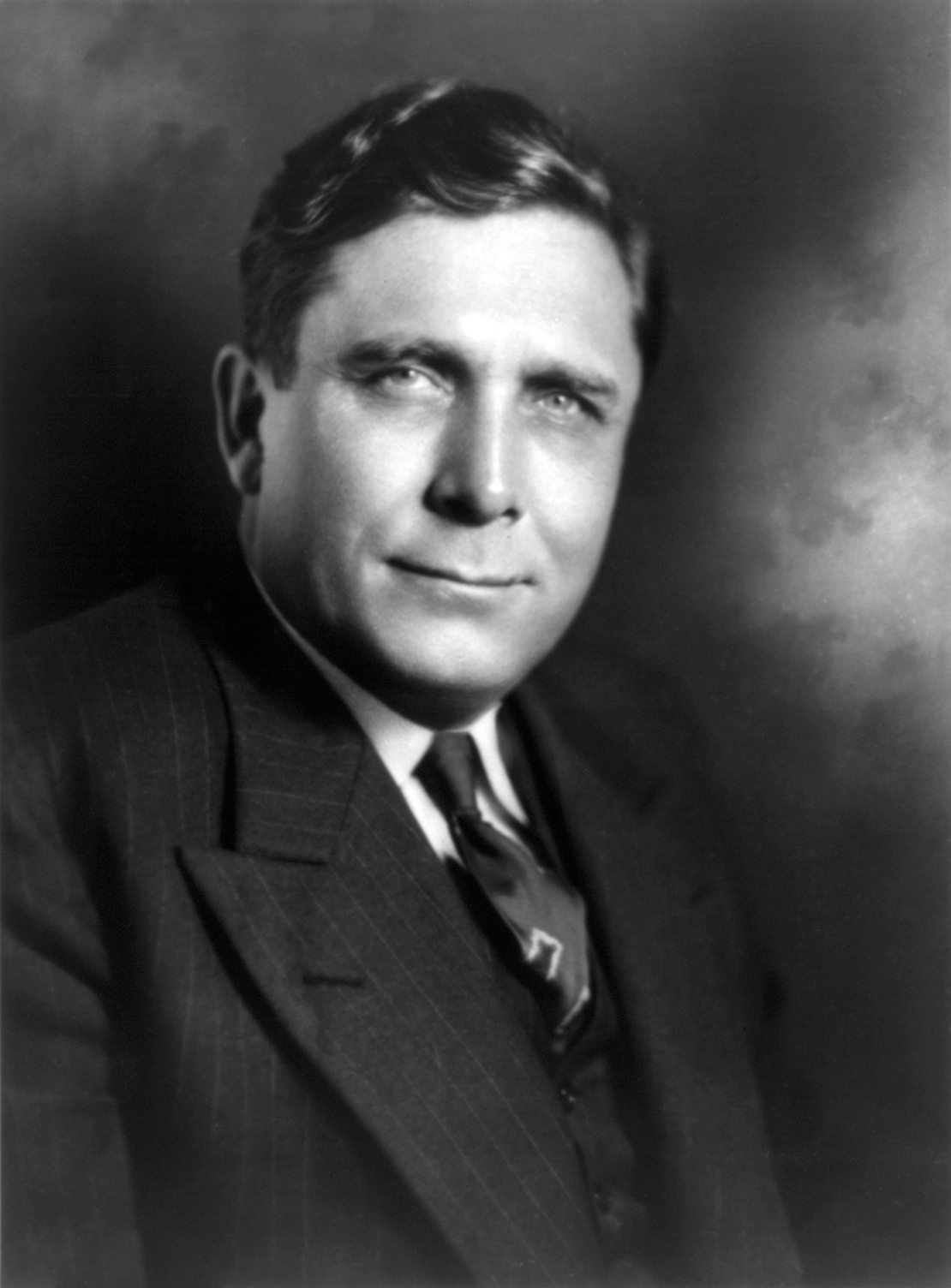
Wendell L. Willkie
Wendell Lewis Willkie
Corporate executive and 1940 Republican presidential nominee who introduced the concept of loyal opposition to American politics and promoted internationalism during World War II.
Wendell L. Willkie: A Short Biography
Wendell Lewis Willkie was born on February 18, 1892, in Elwood, Indiana. His parents were both lawyers, and his father had come to America from Germany. Willkie grew up in a household that valued education and political discussion. He attended Indiana University, where he was active in debate and student politics. After graduating with a law degree in 1916, he practiced law in Indiana.
During World War I, Willkie served as a first lieutenant in the Army. After the war, he returned to law practice and moved to Akron, Ohio, where he worked for Firestone Tire and Rubber Company. In 1929, he moved to New York to join the law firm that represented Commonwealth & Southern Corporation, a large utility holding company. He became president of the company in 1933.
As head of Commonwealth & Southern, Willkie became known for his opposition to the Tennessee Valley Authority, a New Deal program that competed with private utilities. He argued his case in court and in public debates, gaining national attention. Though he had been a Democrat and even a delegate to the 1924 Democratic National Convention, he switched to the Republican Party in the late 1930s over his disagreement with Roosevelt's economic policies.
As a Public Speaker
Willkie was known for his informal and direct speaking style. Unlike many politicians of his time, he spoke without notes for most of his speeches. He used simple language and often spoke in a conversational tone. His speaking manner was different from the more formal style common in politics at the time.
During the 1940 presidential campaign, Willkie gave hundreds of speeches across the country. He traveled by train and spoke from the rear platform at stops in small towns and large cities. His voice became hoarse from the constant speaking, and he sometimes lost his voice completely. He spoke to crowds of all sizes, from small gatherings to stadium rallies.
Willkie's speeches often focused on specific policy issues rather than general political themes. He talked about economics, business regulation, and foreign policy in detail. He was willing to take unpopular positions if he believed they were right. During the campaign, he supported aid to Britain when many Republicans were isolationists.
After losing the election, Willkie continued to speak on public issues. His November 1940 radio address on loyal opposition reached millions of listeners. He also gave speeches supporting the war effort and promoting international cooperation. His speaking tours helped build public support for American involvement in World War II before Pearl Harbor.
Notable Speeches
Wendell Willkie's major public addresses
Republican Convention Acceptance Speech
Willkie's acceptance of the Republican presidential nomination after his surprising victory at the convention.
Elwood Acceptance Speech
Formal acceptance speech delivered in his hometown of Elwood, Indiana, to a crowd of over 200,000 people.
Loyal Opposition
Radio address after losing the election, defining the role of the opposition party in American democracy.
Read MoreReport to the People
Radio address after returning from a trip to Britain, arguing for increased American aid to the Allies.
Report on Russia
Speech about his visit to the Soviet Union during World War II, discussing the need for cooperation.
Legacy & Impact
Loyal Opposition
Willkie introduced the concept of loyal opposition to American political discourse. His November 1940 speech after losing the election established the idea that the minority party could oppose government policies while supporting the country. This framework became a standard part of American democracy. Political parties continued to use this approach during times of crisis, including wars and national emergencies. The concept helped maintain democratic debate even when national unity was important.
Republican Internationalism
Willkie helped move the Republican Party away from isolationism toward international engagement. His support for aid to Britain during the 1940 campaign was unusual for a Republican at that time. After the election, he traveled to Britain, the Soviet Union, and China as Roosevelt's informal representative. His book One World, published in 1943, sold over two million copies and argued for international cooperation after the war. His internationalist views influenced the Republican Party's foreign policy positions in the post war period.
Business and Politics
Willkie showed that business executives could successfully enter politics at the highest level. He had never held elected office before running for president, yet he won the Republican nomination and received over 22 million votes. His campaign demonstrated that outsider candidates could challenge established politicians. His business background and practical approach to problems appealed to many voters. Later business leaders who entered politics often cited Willkie as an example.
Notable Quotes
A vital element in the balanced operation of democracy is a strong, alert and watchful opposition.
— Loyal Opposition speech, November 11, 1940
He is your President. He is my President. We all of us owe him the respect due to his high office.
— Loyal Opposition speech, November 11, 1940
Freedom is an indivisible word. If we want to enjoy it, and fight for it, we must be prepared to extend it to everyone.
— One World, 1943
The constitution does not provide for first and second class citizens.
— Campaign speech, 1940
Discover More Great Orators
Explore our collection of speeches from history's most influential speakers.